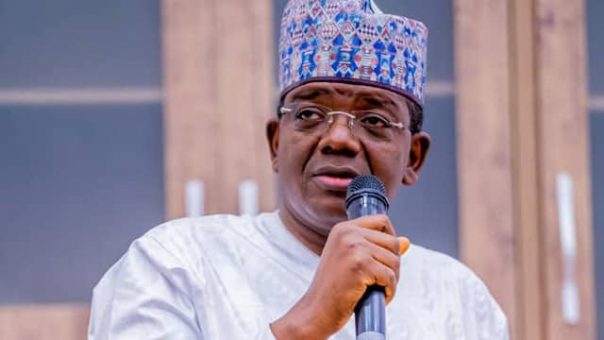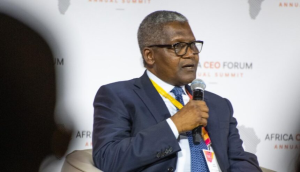
The Nigerian Armed Forces, along with the nation’s paramilitary and police forces, require an estimated 350 million rounds of ammunition annually to sustain their operations effectively, according to Minister of State for Defence, Bello Matawalle.
This revelation was made during the signing of a Memorandum of Understanding (MoU) in Abuja, aimed at establishing a weapon production plant.
The MoU, signed between the Ministry of Defence, the Defence Industries Corporation of Nigeria (DICON), and the National Agency for Science and Engineering Infrastructure (NASENI), marks a significant step towards self-sufficiency in defence production. The event was attended by high-ranking officials, including the Chief of Defence Staff, General Christopher Musa, service chiefs, and heads of security agencies.
President Bola Ahmed Tinubu, represented by the Secretary to the Government of the Federation, Senator George Akume, explained that his swift approval of the DICON Bill within six months was driven by his vision of achieving self-reliance in defence production. “DICON has become a cornerstone of Nigeria’s military-industrial complex, producing ammunition and equipment that support Nigeria’s military and security agencies,” the President noted during the 60th anniversary of DICON and the maiden African Defence Industries Conference in Abuja.
Matawalle emphasized the need for Nigeria to export its military capabilities, stating, “If past administrations had made self-sufficiency their goal, Nigeria would by now be exporting its military capabilities.” He assured President Tinubu that within the next four years, DICON would be exporting military hardware, thereby reducing the nation’s dependence on foreign imports.
The Vice Chairman and CEO of NASENI, Khalil Suleiman Halilu, highlighted the importance of the partnership with the Ministry of Defence, noting that it underscores Nigeria’s commitment to harnessing scientific and engineering expertise for national defence. “Our goal is to create a robust ecosystem that not only supports the needs of the armed forces but also fosters the growth of local industries,” Halilu stated.
The Minister of Steel Development, Shuaibu Audu, also pointed out the potential of the Ajaokuta Steel Plant to contribute to the Military Industrial Complex. “Ajaokuta Steel Plant has the capacity to support military production, including helmets, vests, rifles, bullets, and body parts for military tanks,” he said.
President Tinubu further elaborated on the strategic importance of the newly enacted DICON Act, which provides a framework for modernizing Nigeria’s defence manufacturing capabilities. “The DICON Evolution Strategy and Road Map 2033, based on the DICON Act 2023, is designed to bridge performance gaps and reposition DICON as a global player,” the President emphasized.
General Christopher Musa, Chief of Defence Staff, called for greater collaboration among African nations to tackle security challenges, stressing the need for regional cooperation and the development of indigenous production capacities. “As African nations continue to confront threats to peace and stability, it is essential that we work together to enhance our defence capabilities,” he said.
The Director-General of DICON, Major-General Aniedi Edet, outlined the corporation’s rebranding efforts under the new DICON Act, which he said would enhance military capabilities and human capital development. “Our projects now encompass not only military products but also ventures into civilian applications that leverage our technological capabilities,” General Edet remarked.








